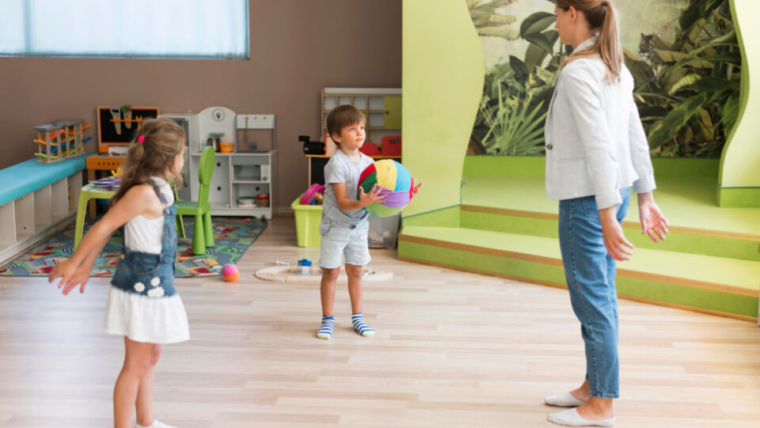Introduction:
Play is a fundamental aspect of childhood that not only brings joy and entertainment but also plays a crucial role in children’s social, emotional, and cognitive development. As children engage in play, they navigate through various stages that reflect their evolving social skills, interactions, and understanding of the world around them. Understanding these social stages of play can provide valuable insights for parents, educators, and caregivers as they support children’s growth and development.
Solitary Play:
- Solitary play typically occurs during infancy and early toddlerhood, where children engage in play independently and are focused on exploring their immediate surroundings. During this stage, children may be seen playing with toys, objects, or engaging in self-directed activities without interaction or engagement with others. Solitary play is essential for fostering independence, creativity, and self-discovery.
Parallel Play:
- Parallel play emerges around the age of two and is characterized by children playing alongside each other without direct interaction or collaboration. Although children may be playing with similar toys or engaging in similar activities, they remain focused on their individual play experiences. This stage reflects the beginning of social awareness and the ability to be in the presence of others while still maintaining a sense of autonomy.
Associative Play:
- Associative play typically begins around the age of three and is marked by increased social interaction and communication among children. During this stage, children start to engage in loosely structured play with peers, where they share toys, take turns, and exchange ideas. While there may be some cooperation and collaboration, there is still a degree of independence in play choices and actions. Associative play fosters the development of social skills such as sharing, cooperation, and verbal communication.
Cooperative Play:
- Cooperative play represents the highest level of social play and usually emerges around the age of four or five. During this stage, children actively collaborate with peers to achieve common goals and engage in more organized and structured activities. Cooperative play involves negotiation, problem-solving, and role assignment, as children work together to create imaginary worlds, engage in group games, or participate in team sports. This stage promotes the development of important social and emotional skills such as teamwork, empathy, and conflict resolution.
Supporting Children’s Social Development Through Play:
Encouraging and facilitating opportunities for play is essential for supporting children’s social development across the various stages. Parents, educators, and caregivers can promote healthy social interactions by:
- Providing a variety of age-appropriate toys, games, and activities that encourage exploration, creativity, and imagination.
- Creating opportunities for children to play with peers in both structured and unstructured settings, such as playdates, group activities, or organized sports.
- Modeling positive social behaviors and communication skills, such as sharing, taking turns, and resolving conflicts peacefully.
- Offering guidance and support when necessary, while also allowing children the freedom to explore and navigate social interactions independently.
- Celebrating and reinforcing positive social interactions and achievements, such as cooperating with others, showing empathy, or demonstrating good sportsmanship.
Understanding the social stages of play in children provides valuable insights into their developmental journey and helps caregivers create supportive environments that nurture social skills, cooperation, and friendship. By recognizing and embracing the importance of play in fostering social development, we can empower children to navigate the complexities of social interactions with confidence, empathy, and resilience.




